Truthdigger of the Week: Ellen Brown
Ellen Brown is a major public intellectual and a tireless promoter of a tried and tested solution that may represent Americans' best chance at taking their society back from predatory bankers.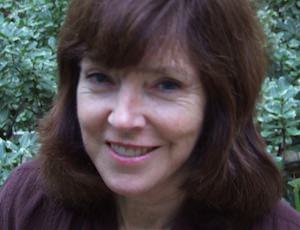
Every week the Truthdig editorial staff selects a Truthdigger of the Week, a group or person worthy of recognition for speaking truth to power, breaking the story or blowing the whistle. It is not a lifetime achievement award. Rather, we’re looking for newsmakers whose actions in a given week are worth celebrating. Nominate our next Truthdigger here.
What could happen if we took authority over banking away from Wall Street and gave it to the public? We’re told this is a bad idea — finance is too complex for common people. No doubt this is true. But as events of the last decade have shown, banking in its current form is too complicated even for Harvard-educated “financial wizards” to understand.
Of course, that’s the point. If the public can’t comprehend what the financial class is doing, then it’ll have a difficult time recognizing crimes are being committed. “Financial instruments” such as “derivatives” function as cloaks of theoretical obscurity behind which expensively dressed men may steal and kill with impunity.
We learned during the fallout of the crisis that, with regard to the running of society, much of what bankers do today is unessential. True, money must be created, loans must be made and we do need a place to store and exchange it all, but the bulk of Wall Street’s ongoing activities amount to little more than the transfer of existing cash (or money that it creates with the stroke of a keyboard) from the massive poor and middle-class public to the wealthy few, or from one rich person to the next. It is a beautifully constructed confidence trick that evolved over decades as an elite few sought to dismantle laws written in response to the Great Depression that ensured that the wealth created by private and public enterprise would be enjoyed by a greater share of the public.
The crash of 2008 demonstrated the dangers of letting the financial industry govern itself. Then the laughably inadequate regulatory response from Congress and the subsequent recovery-for-the-rich-only proved beyond a shadow of a doubt that the banking class owns all three branches of the U.S. government. That means that wherever it threatens the interests of the rich, political democracy exists in name only. As Truthdig columnist Chris Hedges has repeatedly said, somewhere along the line our government underwent a “corporate coup d’état in slow motion.” Through the genius wiles of private finance, the American government became a beneficence and protection racket for the rich.
Many Americans grasp this instinctively, but only a small number have the training and time necessary to put together what’s happened in a way that makes even a part of the whole devious system apparent. Among them is Ellen Brown, a former civil litigation attorney who has spent much of the past decade outlining, in terms ordinary Americans can understand, the financial scheme the superrich use to plunder everyone else. Her articles appear on her website, The Web of Debt Blog, and are republished on independent websites like Truthdig and mainstream operations like The Huffington Post.
The financial crisis drove a number of economic explainers into the public spotlight. Paul Krugman, Robert Reich and Joseph Stiglitz are associated with some of the most established organizations (The New York Times, the Clinton White House and the World Bank, respectively) and are thus among the best-known public critics. But their alignment with conventional institutions has meant their solutions cannot stray too far from orthodox thinking. Brown, on the other hand, is an outsider. Although this has limited her public exposure, it has also given her a freedom her peers don’t possess: the ability to imagine solutions commensurate to the problem, regardless of their popularity among our current deciding class. Her primary mission today is convincing Americans of the necessity of converting some large portion of the banking industry, which is dominated by private interests, into a public enterprise that works to serve the general good, and building a national movement capable of making this happen.
The benefits of public banking at every municipal level flow like floodwater through the mind when given a moment’s thought. Unlike profit-seeking private banks, these public institutions could be run at a low overhead. They could be legally prohibited from dangerously risking depositors’ money for short-term gains, and would mean an end to casino-style gambling with investments, pensions and other savings. In countries where they are amenable to democracy, the public can have some say in the selection of their staff and policies, either directly or through representatives. Furthermore, and perhaps most appealingly, such banks could be mandated to fund every single public welfare project you and I could imagine: a green energy industry to make electricity 100 percent renewable and develop the technologies we now know we need to reverse global warming; the giving of small business and home loans at affordable interest rates; an end to the full spectrum of exorbitant banking fees such as ATM costs and charges for cashing a check; the launch of infrastructure projects to repair and rebuild America’s crumbling highways, bridges, dams and buildings; and a jobs program to employ every out-of-work person.In the same manner that labor unions forced business to be more democratically accountable in the early part of the 20th century, a successful public banking movement would force a change in the way the existing financial culture operates. As they drew depositors, private banks would have to evolve to compete on something closer to an even playing field. If public banks organized and funded political lobbies, they could finance the campaigns and careers of politicians who would serve the public and reverse the almost complete existing privatization of government. Efforts such as the plan (drawn up by the U.S. Federal Deposit Insurance Corporation and the Bank of England) to confiscate the savings of depositors to prop up corporate banks in the event of another financial meltdown (which Brown explained eloquently in an article that drew huge attention on Truthdig), would face genuine political opposition. Additionally, public banks could alter the priorities of the Federal Reserve.
A key part of the genius of public banking as envisioned by Brown is that it recognizes that political democracy is impossible without economic democracy. Individual financial security is a prerequisite to free participation in democratic government. A livable income, freedom from overwhelming debt and adequate funding for essential goods and services — including the education necessary to understand and meaningfully take part in society — are all tangible freedoms that make the exercise of citizenship as imagined by America’s founding fathers possible. Without those freedoms, the majority of us are kept occupied doing whatever we must do to survive. We are reduced to the status of helpless prey for oligarchs operating without restraint, and suffer misery and drudgery or worse.
Some forms of public banking exist in Japan, Germany, New Zealand, Australia, Canada and elsewhere, but the United States already has its own successful example. The state-owned Bank of North Dakota, a favorite example of Brown’s, has operated splendidly for almost 100 years. In a 2011 article for YES! Magazine, Brown attributed the state’s enviable performance in the ongoing recession and its ability to capitalize on its oil resources to the support of its public bank:
Access to credit is the enabling factor that has fostered both a boom in oil and record profits from agriculture in North Dakota. The Bank of North Dakota (BND) does not compete with local banks but partners with them, helping with capital and liquidity requirements. It participates in loans, provides guarantees, and acts as a sort of mini-Fed for the state.
… The BND’s revenues have also been a major boost to the state budget. It has contributed over $300 million in revenues over the last decade to state coffers, a substantial sum for a state with a population less than one-tenth the size of Los Angeles County. According to a study by the Center for State Innovation, from 2007 to 2009 the BND added nearly as much money to the state’s general fund as oil and gas tax revenues did (oil and gas revenues added $71 million while the Bank of North Dakota returned $60 million). Over a 15-year period, according to other data, the BND has contributed more to the state budget than oil taxes have.
(Watch an informative half-hour film introducing the Bank of North Dakota here.)
Although she resides in Los Angeles, Brown is a peer of economists working out of the University of Missouri at Kansas City. These thinkers, which include former Wall Street analyst Michael Hudson and former bank regulator and originator of the concept of “control fraud,” William Black, are distinguished for basing their economic understanding on what can be observed and measured, rather than the reigning dogma that unregulated markets are the answer to every economic problem (the view promoted for more than 30 years by the Milton Friedman-led Chicago School). Brown, Hudson, Black and their colleagues are intellectual heirs of John Maynard Keynes, the World War II-era economist whose policies created the American middle class, and made Western capitalists even richer in the process. They understand that without laws and powerful public institutions, economic power — and the political power that comes with it — becomes concentrated in a small number of businesses, just as such power is now possessed by major banks in nearly every Western country.
Brown is the author of two books on public banking: 2007’s “Web of Debt” and “The Public Bank Solution,” published this summer. She is the president of the Public Banking Institute, which hosted its second annual conference in San Rafael, Calif., this June. She is a major intellectual writing for the public’s benefit — not for academic honors — and a tireless promoter of a tried and tested solution that may represent Americans’ best chance at taking their society back from predatory bankers. With the hope that her audience might grow, we honor her as our Truthdigger of the Week.
See Brown’s articles published at Truthdig here, read The Public Banking Institute’s responses to frequently asked questions here and watch her talk at the 2013 Public Banking conference below.
publicbankingtv:
Your support matters…Independent journalism is under threat and overshadowed by heavily funded mainstream media.
You can help level the playing field. Become a member.
Your tax-deductible contribution keeps us digging beneath the headlines to give you thought-provoking, investigative reporting and analysis that unearths what's really happening- without compromise.
Give today to support our courageous, independent journalists.
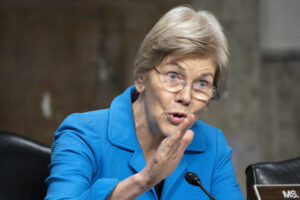

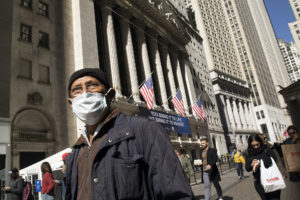
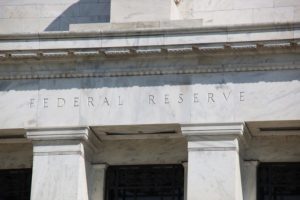
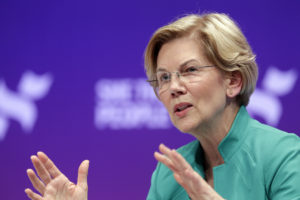
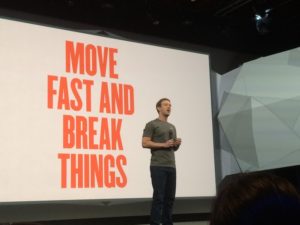
You need to be a supporter to comment.
There are currently no responses to this article.
Be the first to respond.